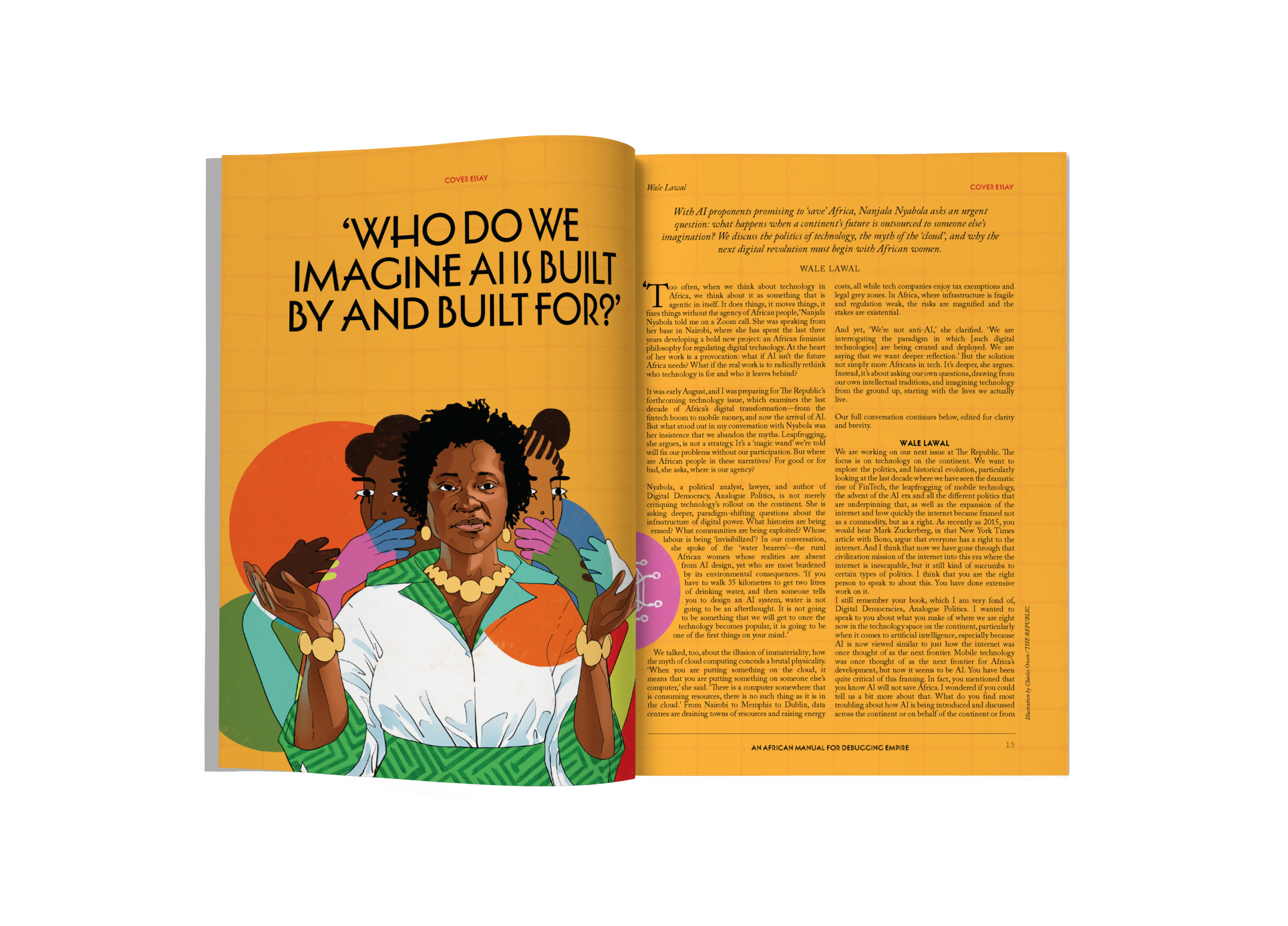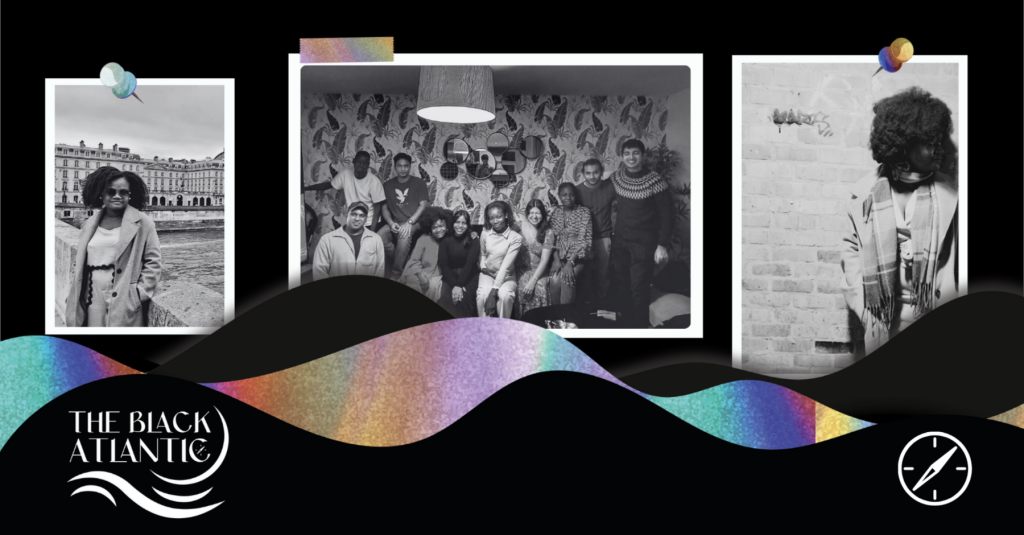
Photo Illustration by Michael Emono / THE REPUBLIC.
THE BLACK ATLANTIC
A Yoruba Woman’s Notes on Language as a Barrier, Bridge and Bedrock

Photo Illustration by Michael Emono / THE REPUBLIC.
THE BLACK ATLANTIC
A Yoruba Woman’s Notes on Language as a Barrier, Bridge and Bedrock
It was a Friday morning, on the short but hilly walk back from a class to my dorm room, when I opened WhatsApp and made a devastating confession to my mother: I had become more fluent in French, a second colonizer’s language, than I was in my own mother tongue, Yoruba. At the time, I had spent nearly two months in Belgium’s Francophone Wallonia region, and before then, I had spent five months in Bordeaux, France. In the space of those seven months, a rapid metamorphosis had taken place. My once hesitant French had become a fluid stream, weaving together fairly complex sentences that went beyond simply asking for directions or guidance to truly getting to know people and letting people get to know me. They would often be left wide-eyed at the Nigerian woman who somehow found herself in a small university town in Francophone Belgium and actually spoke the language. I was an outlier, especially to the Francophone Africans, and even though I was a bit weary of the tired expression of amazement, I also lowkey revelled in it. I basked in my quick mastery, in my fluency and polished pronunciations—at least where they didn’t stumble.
But on that Friday morning, someone had asked me for the translation of a word—which eludes my memory now—in my indigenous language, and my mind had stalled. It had fumbled, reaching first for the French equivalent, as if my own language were the foreign one. My brain had started doing that disturbing dance often: it would process that I was trying to speak a non-English tongue, and it would pick French over Yoruba. But how disturbing it is that my own language, one filled with so much beauty and melody, would be considered foreign to me. Why did I not think in my language? Why did I not dream in its colourful tones? Why would my default language be one that was imposed by brutal colonialists on my ancestors’ lips?
ENGLISH AS A FIRST LANGUAGE
I have always struggled with the definition of ‘first language’. I have been told time and time again that mine was indeed Yoruba. I was born in Ibadan to parents who come from a long line of Ibadan people—in essence, I was as ‘omo Ibadan’ as anyone could be. I spent the first two and a half years of my life in the city of my birth and, as legend has it, my Yoruba was flawless while my English was full of holes. And this was a problem, since my family was moving to Abuja soon, on account of my father’s new job. Abuja, this fresh city that was just a couple of decades old at the time (2003), was meticulously planned to form a new, befitting capital city for post-civil war Nigeria. Abuja, the city where Nigeria’s many cultures swirl and melt on northern soil. Abuja, the city where, as I was told, English would absolutely be necessary. And so began my conversion, English trumping Yoruba slowly until what became the norm was for my parents to speak in Yoruba and for me to respond in English because that was where I was most comfortable.
In Abuja, receptive bilingualism became my new normal. When we would travel back to Ibadan to visit family, my attempts to step out of this comfort zone were met with light-hearted teasing. I would stumble through this frustratingly tonal mother tongue of mine, and the laughter would send me back to the safety of English again and again, until I firmly settled in it. And because most of my days were not spent in a city where speaking Yoruba was crucial to survival, it didn’t matter much.
Years later, in senior secondary school, when it was time to pick my subjects for my International General Certificate of Secondary Education, I was faced with the decision of picking between English as a First Language and English as a Second Language. I picked the former and was considered qualified to write it, since my mastery of the language was akin to a native speaker’s. And now I find it painfully ironic that if such a choice existed for Yoruba, I would have to pick the Second Language option and struggle to pass the exam. So, is your first language truly the language you first spoke or the language your mind instinctively reaches for? The language of your comfort zone, your thoughts and dreams?
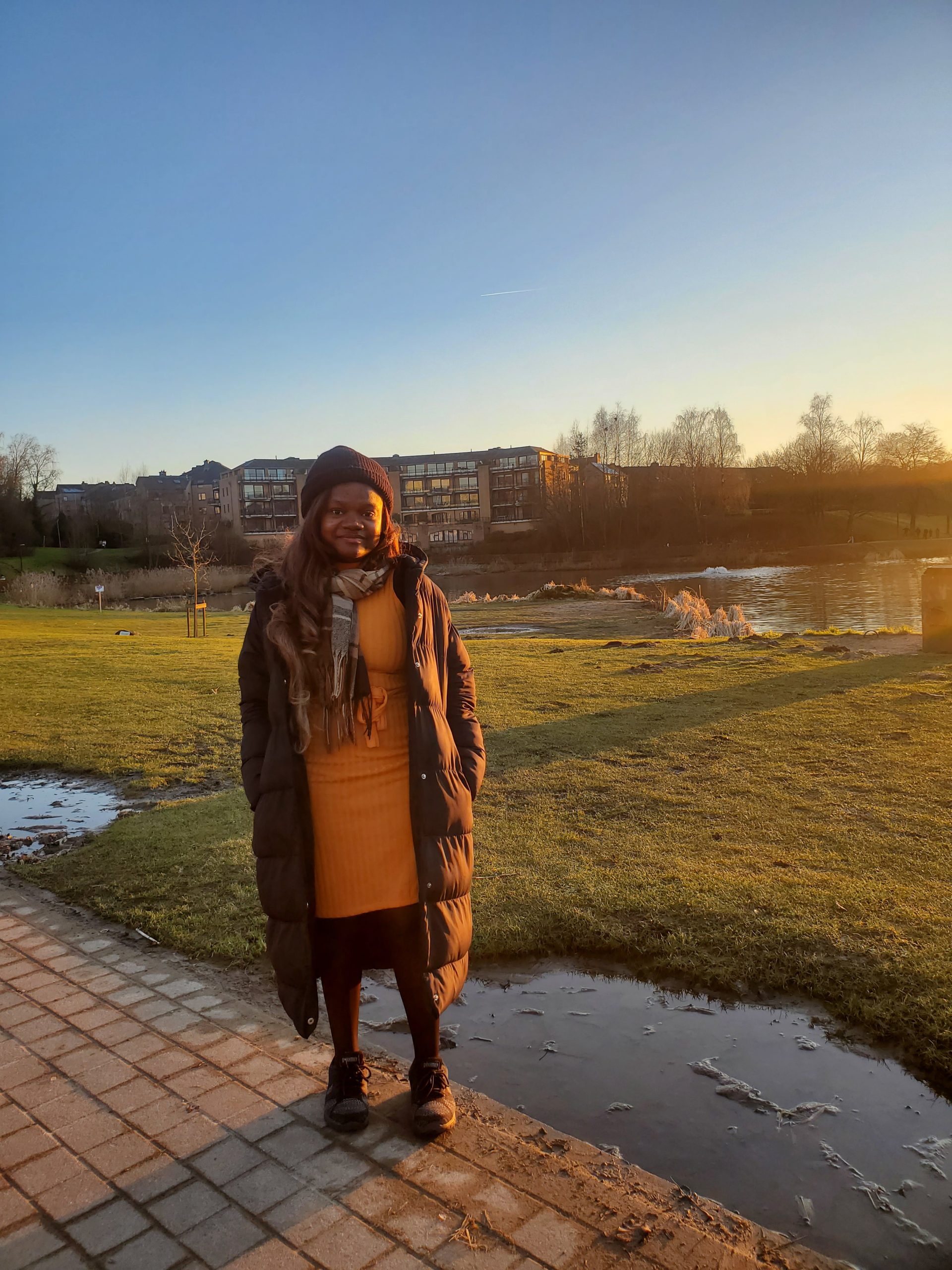
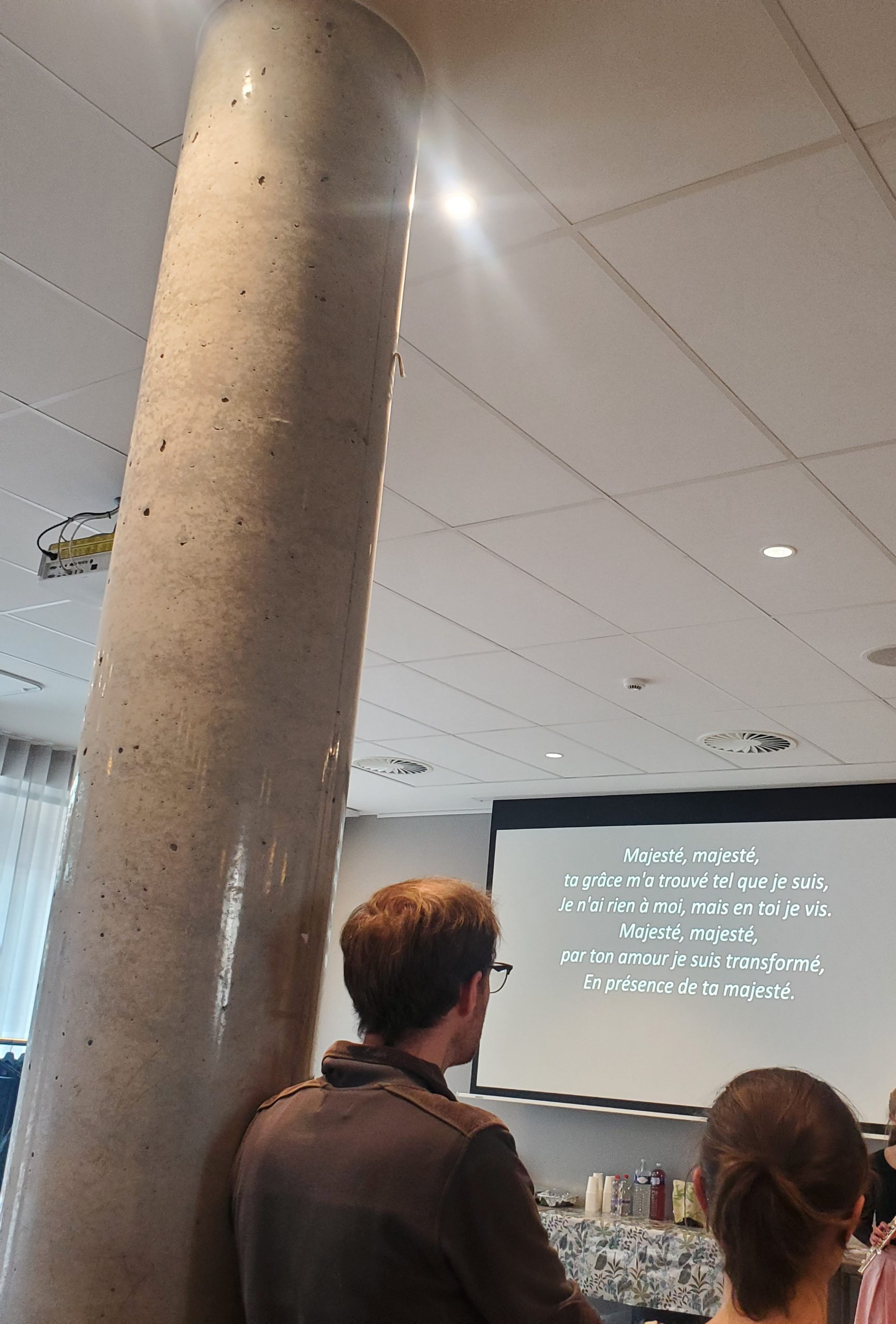
shop the republic
C’EST LA VIE
I have loved the French language for as long as I can remember. In school, I excelled at it, breezing through the conjugations and greetings and necessary memorizations. I liked the way the language sounded, the sophistication of it. And as a dreamy teenager, when I realized that I wanted to study aeronautical engineering, and that Airbus, one half of the passenger aircraft manufacturer duopoly, was headquartered in France, my romanticization of the language deepened. One day, I would live and work in France, putting together flying miracles.
It took about a decade for that dream to take flight. In August 2024, I finally arrived in France for the first time. From the moment the Boeing 737 took off from Murtala Mohammed International Airport in Lagos, I was brimming with excitement about the journey that would propel me closer to my dream. On the layover in Morocco, I began to practice, ordering a croissant and a bottle of water in French at a cafe even though the attendant had spoken in English to someone before me. On the flight from Morocco to Bordeaux, I enthusiastically took to conversing in French with the two Ivorian boys seated beside me. Even then, there were moments I stumbled, but I was happy to. This was the real deal.
Before I left, when people would ask how I felt about moving, I’d say I was five parts excited and three parts scared. I was finally going to study my Master’s programme in France, the country that represented the apex of my dream of being an aeronautical engineer. I had left Nigeria before for the UAE for three years, but this was different. The UAE wasn’t quite as close to my dream, and English was very much a lingua franca there. Now, I was going to a country where my inchoate understanding of the language and way of life would probably deal me some profound blows.
On my arrival day, I was nearly felled by such blows shortly after I landed. I had opted not to buy a SIM card from the single network provider present at the airport, since it wasn’t one of the ones recommended to me. But it was fine, since my mobile data from my Nigerian network provider was oddly working, so I could book a ride home. The weather was what the French would call ‘beau’, bright and sunny, not like the numbing cold I thought I would be thrust into, so I took this as a good sign.
But when I landed at my apartment building, the network disappeared, as oddly as it had appeared in the first place, leaving me stranded. I stood at the front door for a good few minutes, marvelling at the sheer hilarity of the fact that I was starting my French sojourn with a small bout of homelessness. Then I approached the single neighbour I found standing in his balcony, explaining my situation in the rustiest French known to man. Thankfully, the man understood a little English and helped me call my agent, who explained that since my inventory appointment was for 4 o’clock, she couldn’t come with the key till then. I had about three hours to kill, three hours of having to ask strangers for directions to a restaurant, pastry shop or something, since I couldn’t simply open Google Maps.
The recurring response—‘Sorry, I don’t speak English’—turned my happy stumbling into a frustrated tangle. I thought I spoke French, but these French people spoke like they were rapping a sick flow, their words running out of their mouths faster than my brain could catch them. Still, I had no choice but to speak what little I could and do my best to catch their words. And I would soon learn that it was this lack of choice that would precipitate my learning.
However, before the precipitation came a lot more stumbling, and sometimes even the sense of being crippled. I love being Black. I love being African. In the apposite words of Beyonce, ‘the amount of swag is just limitless…It’s just so much damn swag.’ There is so much beauty, so much of just my kind of humour. But initially, being in France as an Anglophone African with minimal knowledge of the language meant that a shared sense of Blackness or Africanness had to take a back seat in my forging of connections. Instead, what took the front seat was the shared knowledge of English. And this is not to say I didn’t love making friends with people of other races, but I was truly aching to speak with more of my people. Yet, language stood as a barrier, a hindrance to making deep connections.
The first Francophone African I connected with was my flatmate, a Togolese man named Mohammed, who quickly taught me that even though the non-African agent had said I could drink the water from the tap, it was an absolute no-go! ‘Il y a beaucoup de calcaires’, he said, the English words evading him like they often would. My brain scrambled for what ‘calcaires’ meant, and I settled on chemicals as he explained that it upset his stomach. It was not until a week later that I would remember to check the dictionary and learn that ‘calcaire’ meant limestone. There was too much limestone in French tap water. Mohamed showed me where to get essentials at discounted prices and—what I’m most grateful for to date—where the African food markets were. Yet, with Mohamed, there was a limit to how far conversations could go, at least with the version of me he met, since he would relocate to Paris just two weeks after my arrival.
At the university, I would want to speak with the Black students in my classes, but be stopped in my tracks by my rapidly mounting language insecurity. What I knew to say, I would stumble to say, and there was a world of words I did not know to say. So, what was even the point? I stayed in my comfort zone, with the pressing longing for more.
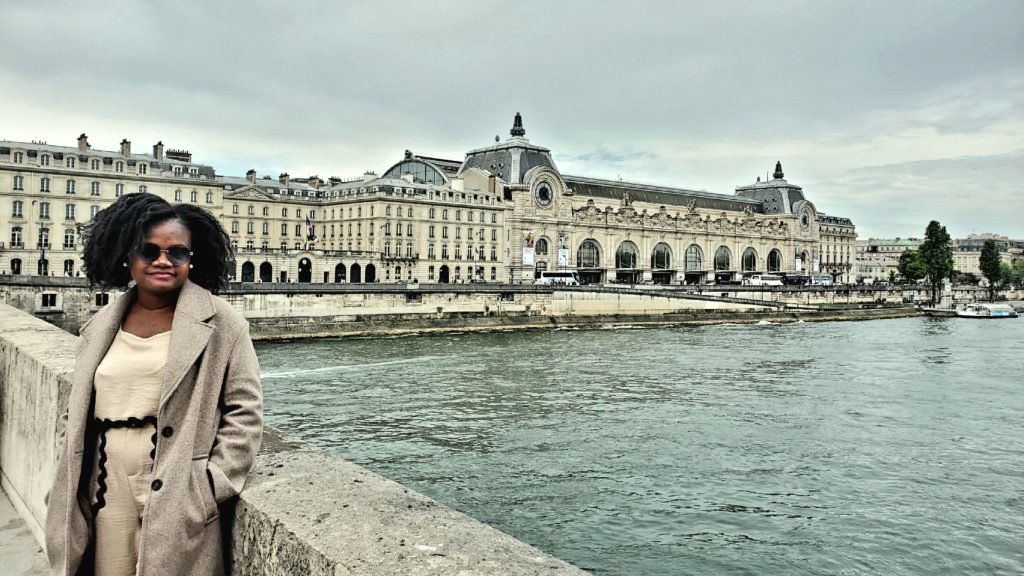
shop the republic
FROM BARRIER TO BRIDGE
For me, practice was the road to confidence, especially when a lack of choice paved the way. I was forced to speak French at the supermarkets, the pastry shops, the post office, the bank, but most of all, at home with my flatmates. Yes, I did take French classes at the university, but it was more the fact that I spoke French every day outside of the four walls of the classroom that made me grow at a rate I had never anticipated. Even though I dread the fact that my own language is taking a back seat to another colonizer’s own, I am grateful for the new world it has given me. For the connections it has helped me forge. For the bridge, however imperfect, it has allowed me to be.
At my Christmas party, I was a bridge. I had decided to host a few friends, most of whom were Anglophone, for my first French Christmas while my Burkinabé flatmate, Ariane, was the only Francophone person around. She had only been around two months, but even in that short time, I had connected with her on that shared sense of Africanness because at that time, my budding B1 French language level allowed me to. When I invited her to the party, she expressed her valid concerns about the language barrier, but I assured her that I would find a way to make it work. My Ghanaian friend, Sandra—who feels most like home to me on this side of the globe—also spoke French, and with the others, I would translate. I searched for a Nigerian movie with French subtitles so she could follow, and I made sure the playlist had a healthy balance of French and English pop songs, as well as Afrobeats, of course. Even I was surprised by how much I was able to translate. And by the end of the night, when Ariane admitted that she had a great time, my heart swelled with a quiet joy and pride.
At the picnic by the lake, I was a bridge. The picnic by the lake in the Belgian university town, where we bounced from spot to spot in search of a wide patch of grass that was not soiled by dog faeces. The picnic by the lake, which I had decided to have to show my Nigerian friend Simi, visiting from England, was a part of my community in Belgium, the bulk of whom were Francophone Cameroonians. We sat as Black women who mostly ate the same things but called them differently, and so didn’t know they were the same: chin-chin as croquettes or moi-moi as koki. We played card games, Cameroonian style, wined and dined and talked about life, naturally through the lens of being African women. I was the dividing line, an imperfect bridge between languages for Simi, who barely spoke any French and Michell,e who barely spoke any English. When Nanette arrived, she told Simi that she spoke more French than English, unwittingly creating a barrier, not because she was unfriendly but because she was shy. She would rather have met a pool of strangers in a language she was comfortable in than stumble around her words all evening. Of course, when it was just us, she was never afraid of stumbling, of ‘looking for the words’ as she often said she was.
One night at Nanette’s, I watched how our worlds collided. One life in Cameroon and one life in Nigeria. Talking about our lived experiences and hopes, stumbling through the words but correcting each other kindly. Always kindly. Without the haughtiness or self-assuredness of knowledge, or the impatience of one who didn’t care for the other person’s growth. I often got this kind of impatience with non-African Francophones, who would switch to French quickly because they simply wanted to get on with their lives and get the conversation out of the way. But with people like Nanette, I learnt that patience was a great form of kindness. And I wanted to embody that kind of kindness often, too.
shop the republic
-
‘The Empire Hacks Back’ by Olalekan Jeyifous by Olalekan Jeyifous
₦70,000.00 – ₦75,000.00Price range: ₦70,000.00 through ₦75,000.00 This product has multiple variants. The options may be chosen on the product page -
‘Make the World Burn Again’ by Edel Rodriguez by Edel Rodriguez
₦70,000.00 – ₦75,000.00Price range: ₦70,000.00 through ₦75,000.00 This product has multiple variants. The options may be chosen on the product page -
‘Nigerian Theatre’ Print by Shalom Ojo
₦150,000.00 -
‘Natural Synthesis’ Print by Diana Ejaita
₦70,000.00 – ₦75,000.00Price range: ₦70,000.00 through ₦75,000.00 This product has multiple variants. The options may be chosen on the product page
shop the republic
BUILDING A COMFORT ZONE AT HOME
I have decided to stop feeling sorry for myself and change my situation. I have decided that I will put as much effort into learning my mother tongue as I have into learning French, or at least try to, since I do not have people around me to speak it with. I have started responding in Yoruba when my parents speak to me in Yoruba over the phone. And switching to Yoruba when I want to share private information (or just gossip) over the phone, as people of other nationalities often do with their languages. And dedicatedly watching Masoyinbo videos on the EAYoruba YouTube channel.
The more I practise, the more I find myself reflecting on the similarities between the two languages. As a daughter of Oduduwa who is also a French speaker, I am doubly doomed phonetically. Every now and then, the ‘h’ sound sneaks up on me or evades me when I need it most, because it doesn’t exist in the same way in Yoruba and French as it does in English—the ‘h factor’ as we call it. In French, ‘ch’ also becomes ‘sh’, like it does for many Yoruba speakers. Yet French accents in spoken English are considered sexy while Yoruba accents are considered crude—a double standard I myself am guilty of but trying to unlearn.
However, there are also some endearing overlaps. In French, the stamp of respect or formality is made with the second person plural pronoun, ‘vous’, instead of the singular ‘tu’, when referring to someone. Similarly, the Yoruba stamp of respect is made with the plural ‘ẹ’ instead of the singular ‘o’. The French believe goodbyes are not final, so they say, ‘au revoir,’ which means ‘till we meet again,’ the same way the Yorubas say ‘ó dàbọ̀. ’ These resonances tell me Yoruba is not so far after all.
I may be thousands of miles away from home, yet it is here that I have decided to reach for my mother tongue and plant myself more firmly in my culture. Language can be a barrier or a bridge, but it can also be a home. Now, I live in another small university town in Germany, and I excitedly reach for French when I encounter Francophone Africans. I smile when their eyes light up at the realization that they need not stumble through English or German with me; I can meet them right at home. But I am also working towards making Yoruba my home, so that one day, my children, wherever they are raised, will inherit it. Let French be my guest house and English my resident house, but Yoruba my family home—the one whose walls breathe belonging, with soil that roots me to the ground⎈
BUY THE MAGAZINE AND/OR THE COVER
-
‘The Empire Hacks Back’ by Olalekan Jeyifous by Olalekan Jeyifous
₦70,000.00 – ₦75,000.00Price range: ₦70,000.00 through ₦75,000.00 This product has multiple variants. The options may be chosen on the product page -
The Republic V9, N3 An African Manual for Debugging Empire
₦40,000.00
US$49.99















